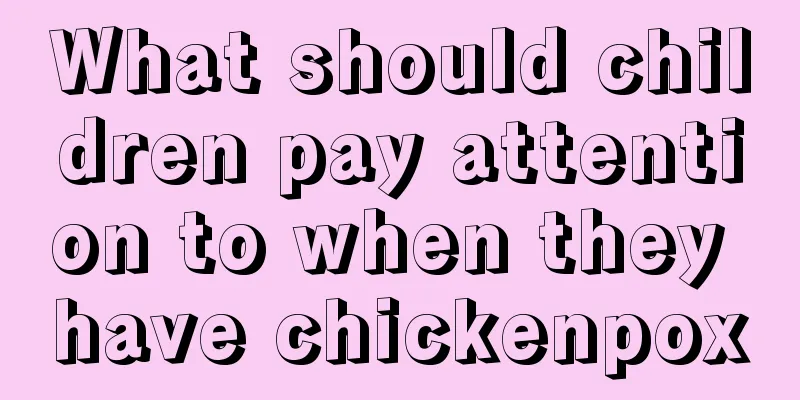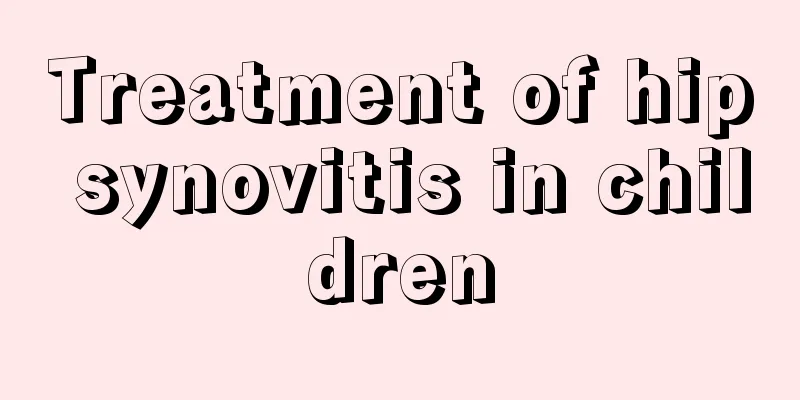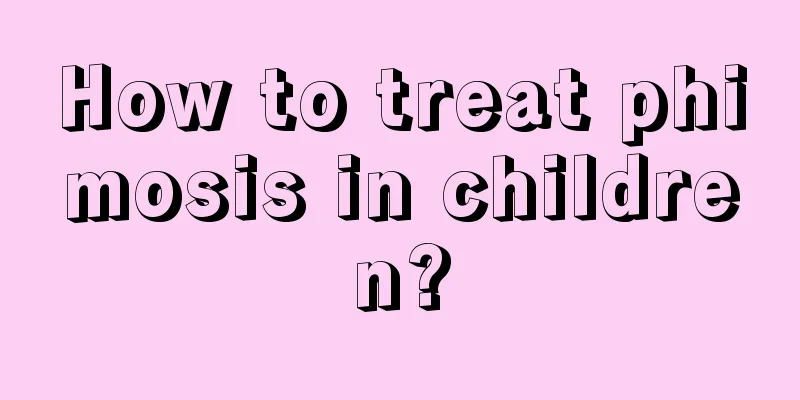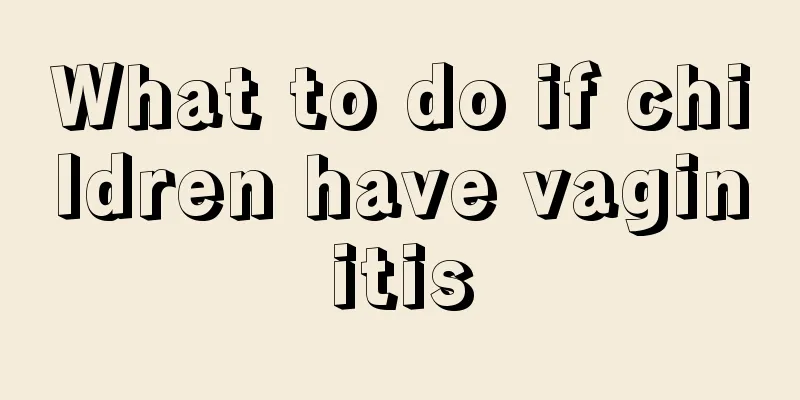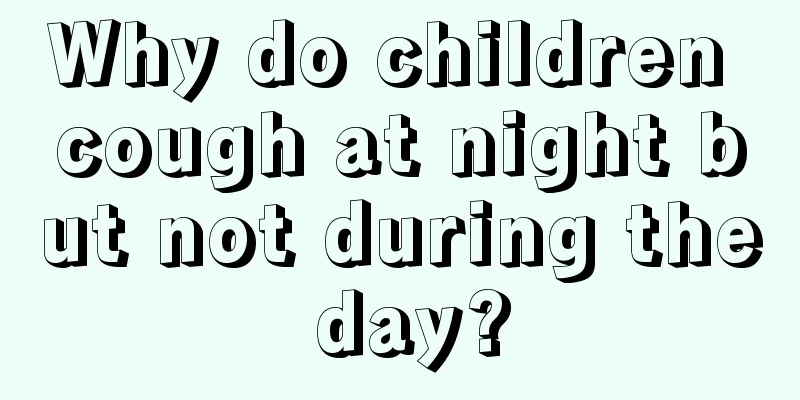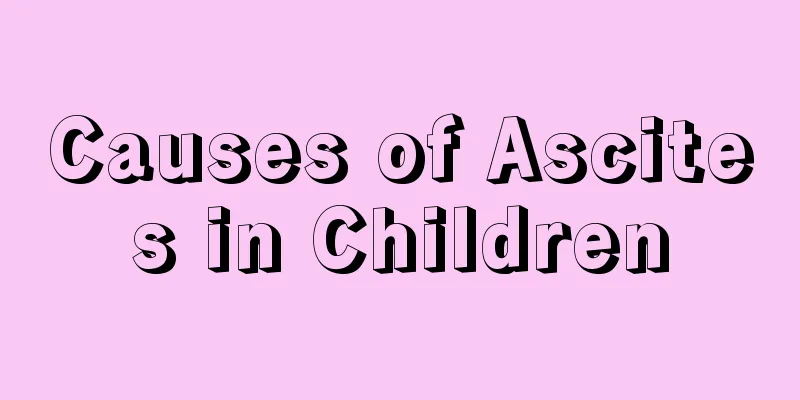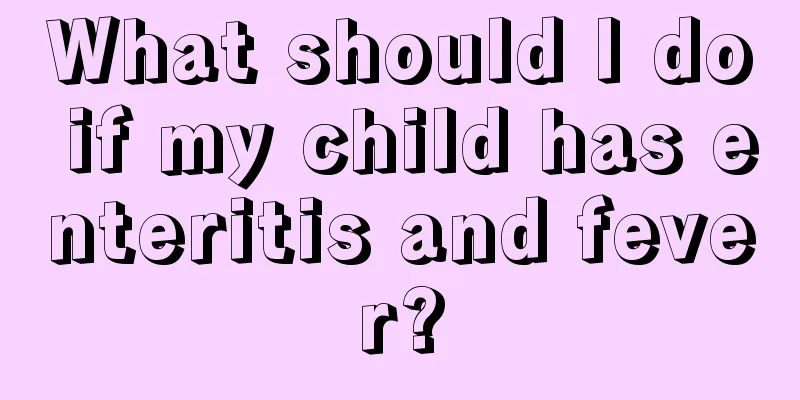Treatment of newborn baby coughing while sleeping

|
Coughing in newborns while sleeping is a common disease. This disease develops very quickly and causes serious damage to the child's respiratory system. Therefore, many parents want to fully understand the treatment methods for newborns' coughing while sleeping in order to improve their children's disease as soon as possible. The following is a detailed introduction for many parents so that you can understand it as soon as possible. The principle of treating children's cough is to identify the cause and treat it accordingly. If the cause is unclear, empirical symptomatic treatment can be performed in order to achieve effective control; if the cough symptoms are not relieved after treatment, reassessment should be performed. Antitussive drugs should not be used in infants. (1) Drug treatment ① Expectorants: If chronic cough is accompanied by phlegm, expectorant should be the principle. Do not simply suppress cough to avoid aggravating or causing airway obstruction. You can use N-acetylcysteine, aminosulphonate hydrochloride, guaifenesin glyceryl ether, myrtle oil and traditional Chinese medicine expectorants. ② Antihistamines: such as chlorpheniramine, loratadine, cetirizine, etc. ③ Antimicrobial drugs: Antimicrobial drugs may be considered for patients with chronic cough who are clearly infected with bacteria, Mycoplasma pneumoniae, or Chlamydia. People infected with Mycoplasma pneumoniae or Chlamydia trachomatis can choose macrolide antibiotics, including erythromycin, azithromycin, clarithromycin, etc. If antibiotics need to be adjusted after initial empirical treatment for infections caused by other pathogens, they should be selected based on the results of drug sensitivity tests. ④ Anti-asthmatic and anti-inflammatory drugs: including glucocorticoids, β2 receptor agonists, M receptor blockers, leukotriene receptor antagonists, theophylline and other drugs. It is mainly used for targeted treatment of CVA, EB, allergic rhinitis, etc. Reassess after 2-4 weeks of glucocorticoid treatment. Cough after infection can generally be relieved on its own. For those with severe symptoms, short-term use of inhaled or oral corticosteroids, leukotriene receptor antagonists or M receptor blockers can be considered. ⑤ Digestive system drugs: It is recommended to use H receptor antagonists such as cimetidine and prokinetic drugs such as domperidone. Pediatric Cough ⑥ Antitussive drugs: Antitussive drugs are not recommended for chronic cough, especially before the cause is clear, and the use of such drugs is related to the morbidity and mortality of some diseases. The American Academy of Pediatrics warns that codeine is contraindicated for the treatment of various types of cough. The sedative effect of phenergan may mislead parents into using the drug to reduce their children's noisemaking while ignoring the drug's adverse reactions, including irritability, hallucinations, abnormal muscle tone, and even respiratory apnea and sudden infant death. The adverse reactions were particularly evident in infants, leading the WHO to issue a warning: Phenergan is contraindicated in children under 2 years old and is prohibited as a cough suppressant. (2) Non-drug treatment Pay attention to removing or avoiding factors that induce or aggravate cough. Avoid contact with allergens, cold, and smoky environments; for sinusitis, nasal lavage and decongestant drugs can be performed; changing body position, changing food properties, and eating small meals frequently are effective for GERC; if there is a foreign body in the airway, the foreign body should be removed promptly; the best treatment for drug-induced cough is to stop the drug; for psychogenic cough, psychological therapy can be given; get vaccinated in time to prevent respiratory infectious diseases and respiratory infections. Treatment methods for newborns who cough while sleeping. The above content has detailed introductions to many parents on treatment methods for newborns who cough while sleeping. So after fully understanding, if your child has a cough while sleeping, you must use the treatment methods introduced above. Through comprehensive treatment, you can ensure that your child can sleep normally and will not cough. |
<<: What are the complications of neonatal rhinitis?
>>: Extrapulmonary Disorders Causing Breathing Problems in Children
Recommend
Treatment for eczema on baby's legs
The problem of eczema on the baby's legs is p...
Can children eat crabs?
Now is the perfect time to eat crabs. The crabs a...
Why does my seven-month-old baby cry when sleeping at night?
Babies need exercise, too. If they are asked to m...
What to do if your baby has phlegm when breathing
Babies are young and have limited body resistance...
What should I do if my three-year-old baby grinds his teeth while sleeping?
Babies will always have some minor problems and c...
Why does a five-month-old baby have a lot of eye mucus?
Usually when you see a lot of eye mucus, you thin...
Rehabilitation treatment for children with cerebral palsy
Nowadays, cerebral palsy in children has become a...
Is your child's urine lemon yellow?
Under normal circumstances, the baby's urine ...
How to regulate baby's stomach?
If the baby has a bad stomach, he will show sympt...
The reason why children clench their teeth when sleeping at night
Children will encounter many problems as they gro...
Small pustules on the newborn's head
The skin of newborns is very delicate. Parents sh...
Why are my baby's lips purple?
When babies are young, they cannot express their ...
How to clean your baby's mouth
Babies do not have teeth when they are born, so y...
What kind of exercise can help children grow taller?
Height is a representation of everyone's imag...
Why does a baby sneeze and have a runny nose?
The coming of a baby into this world brings us a ...
